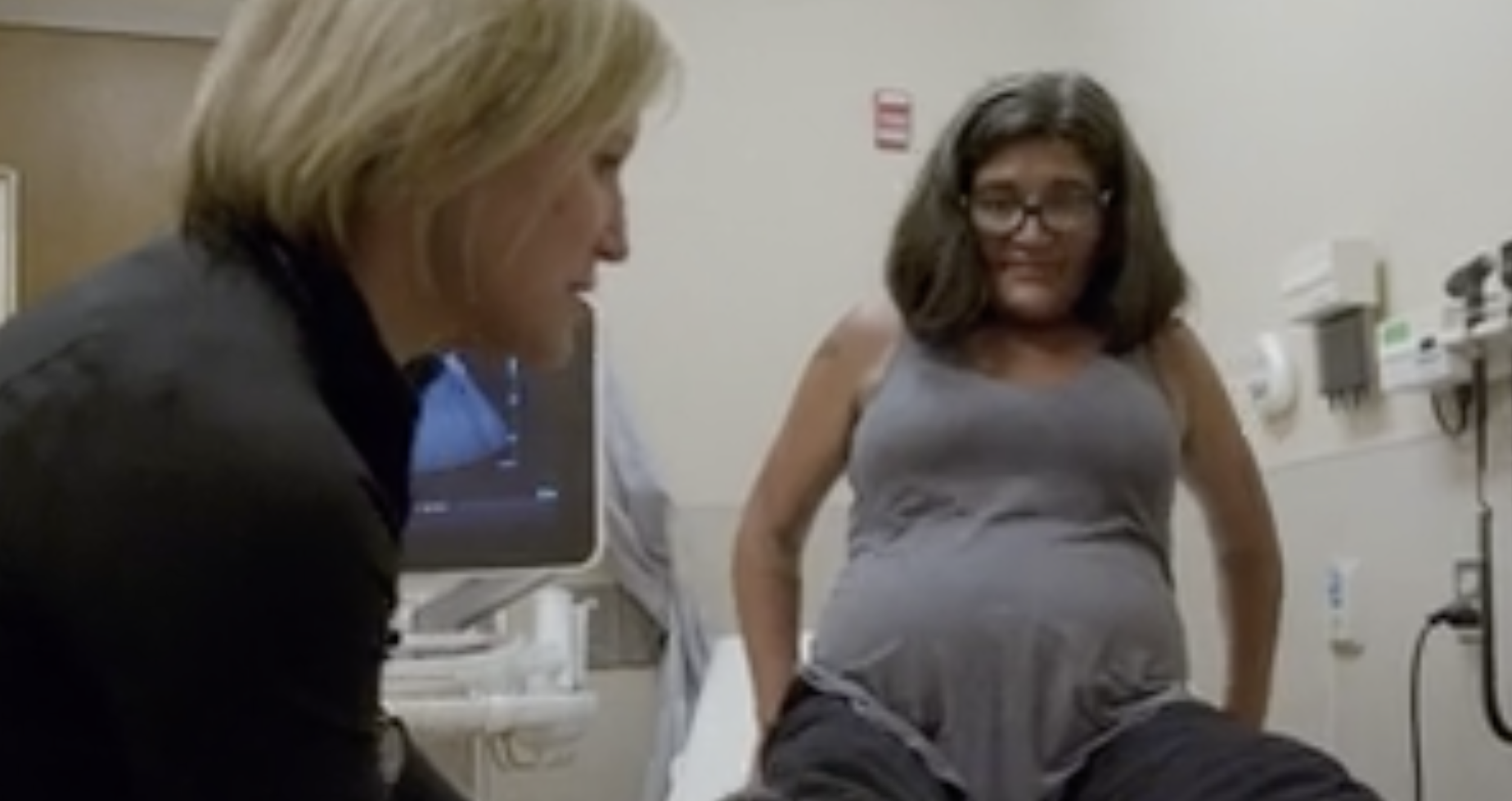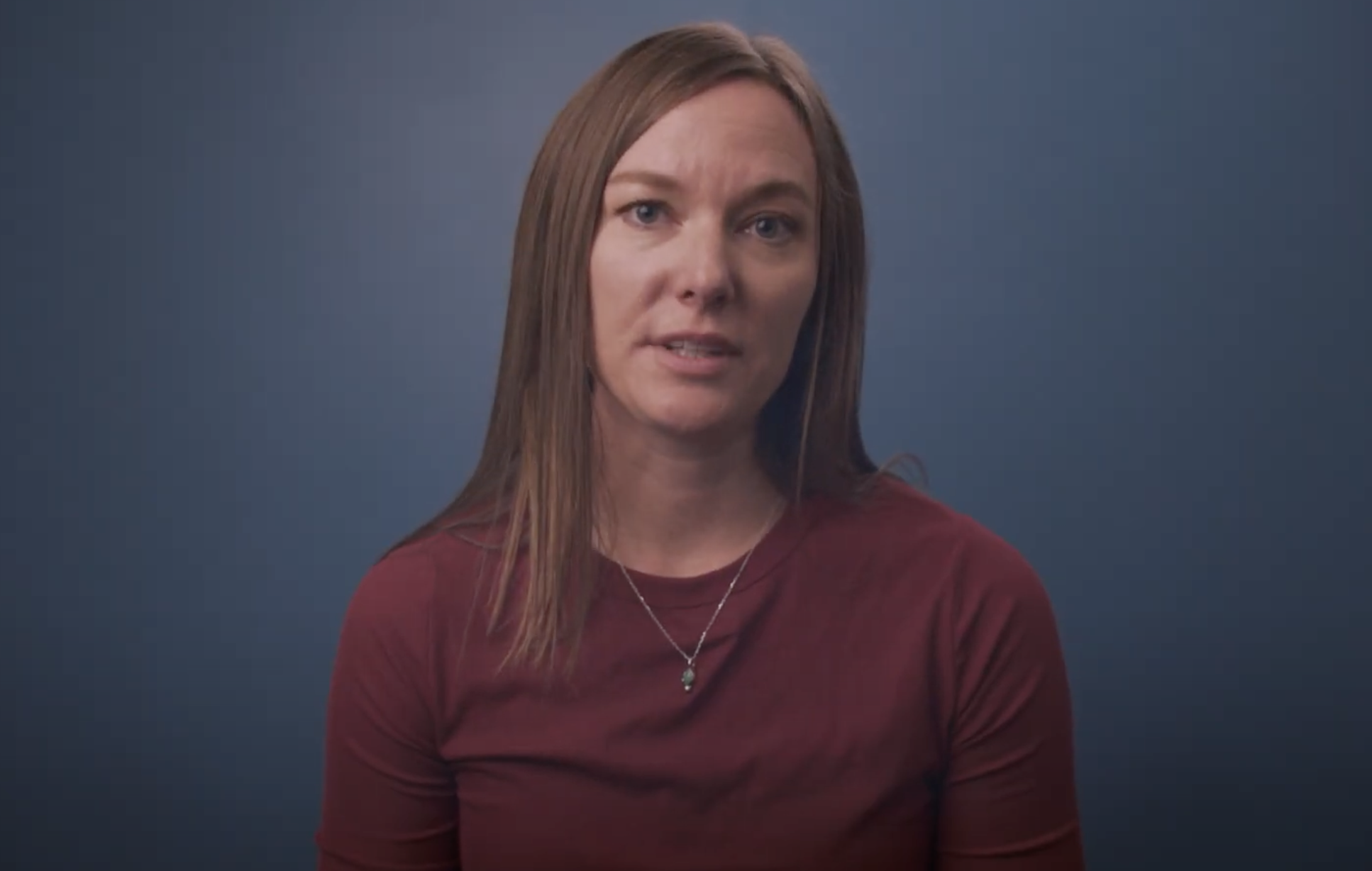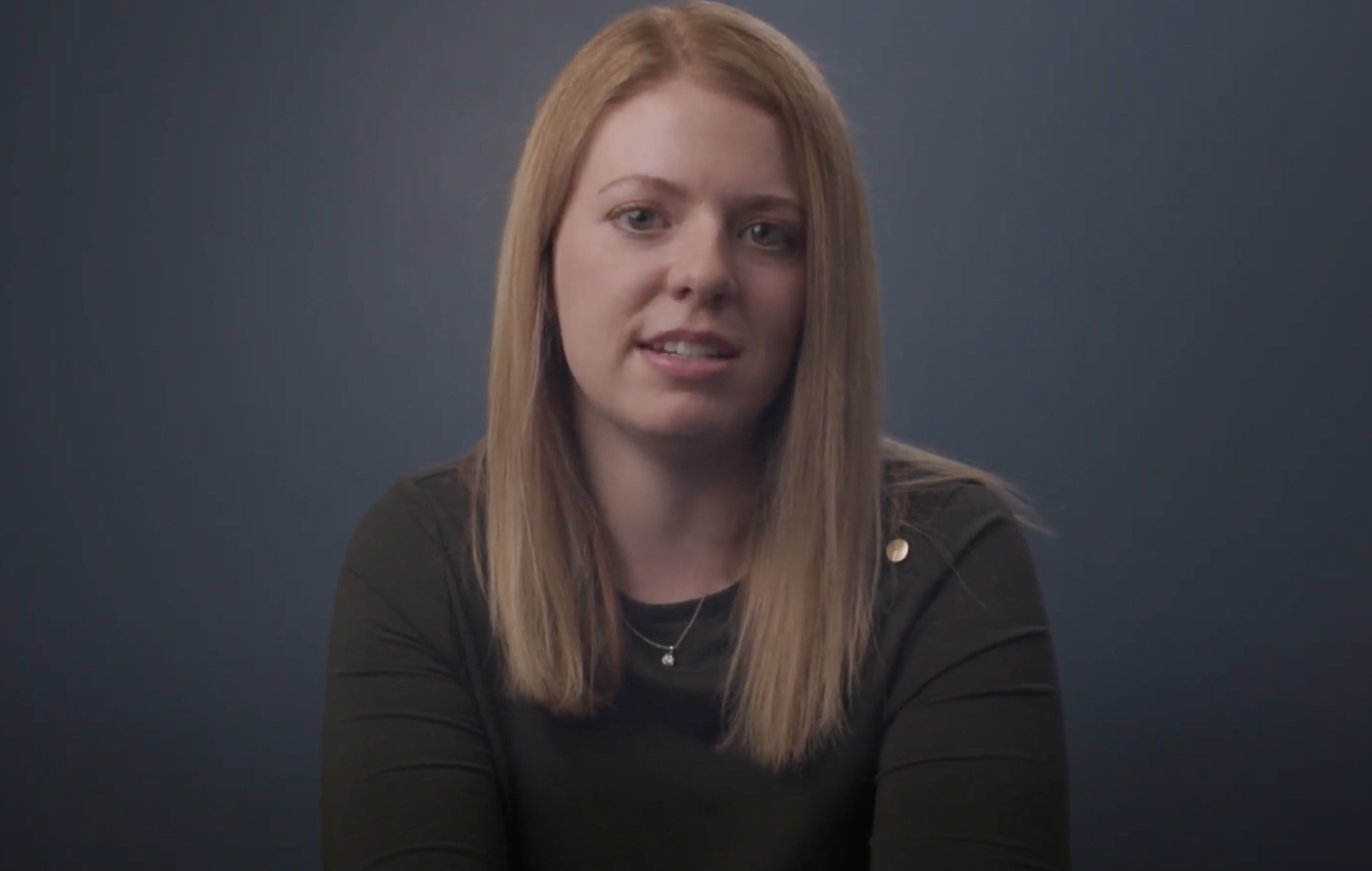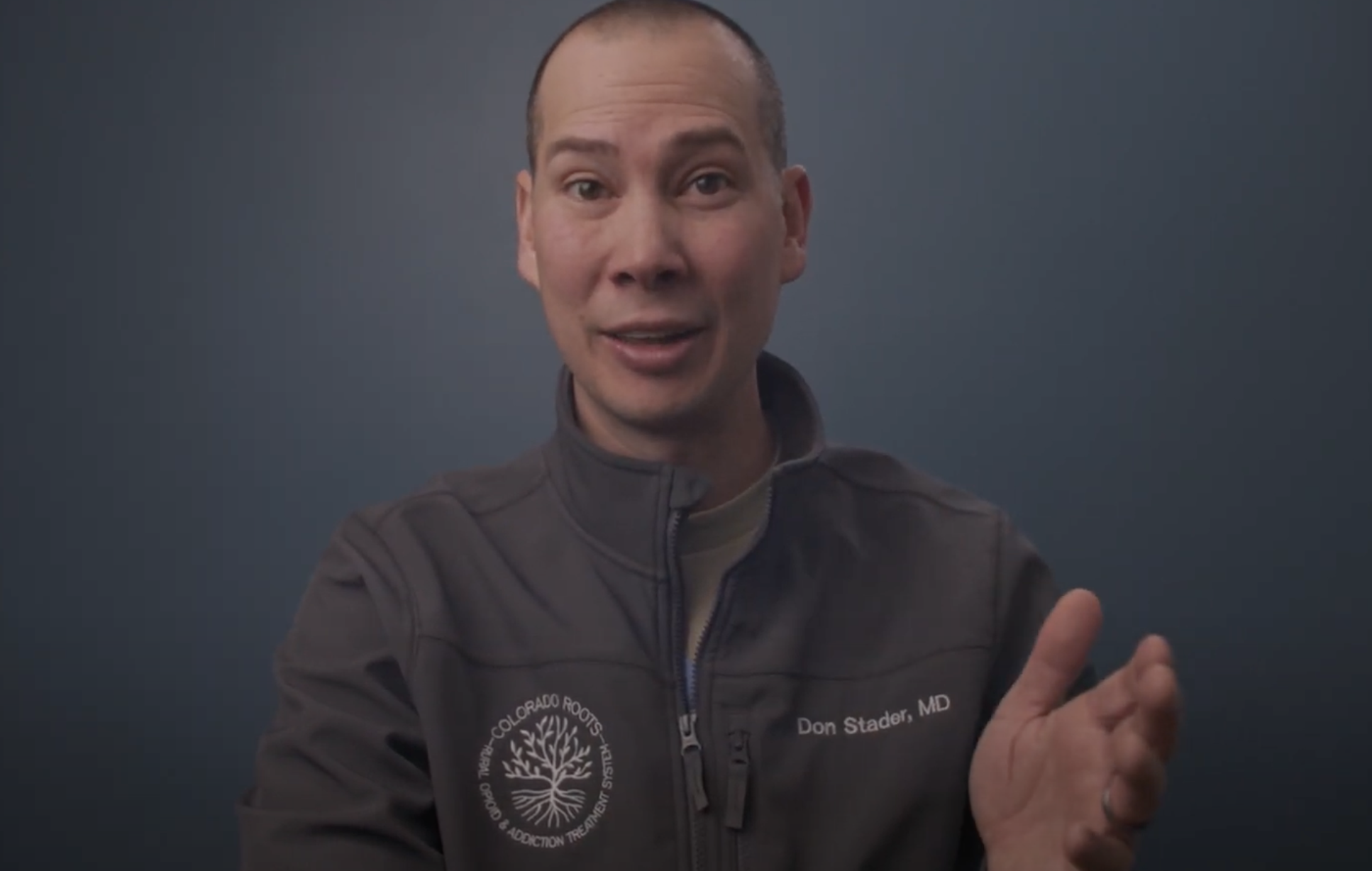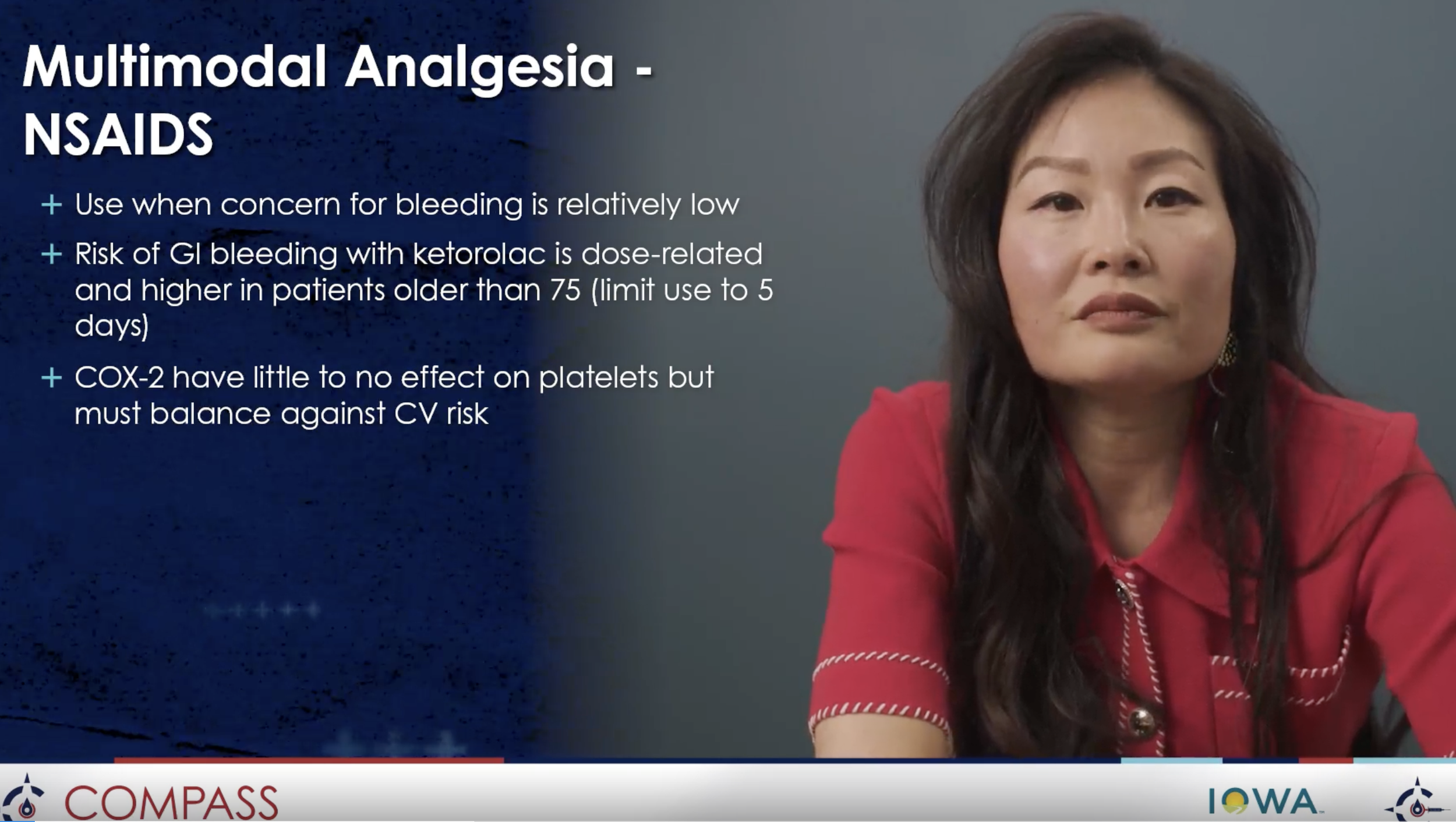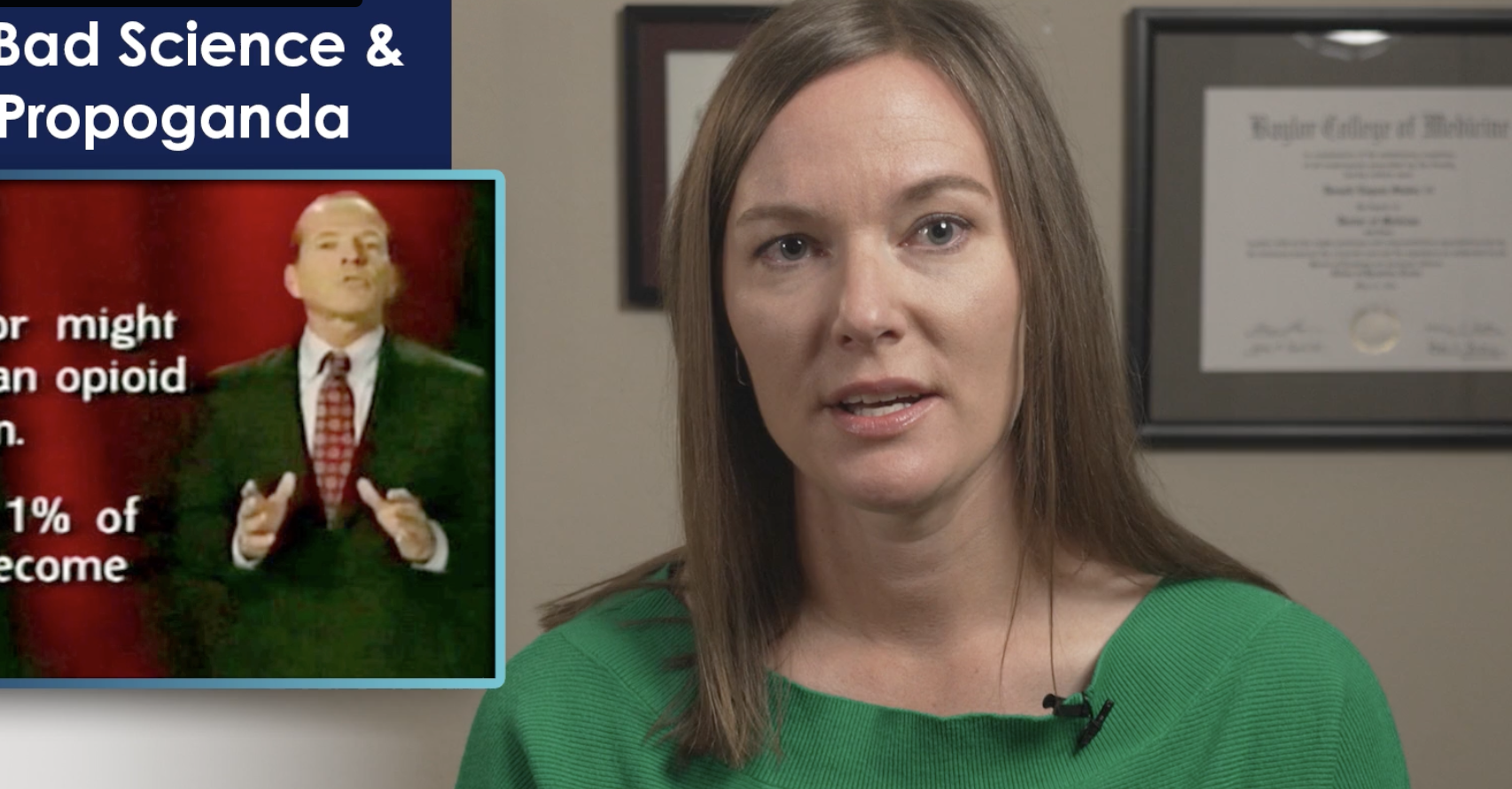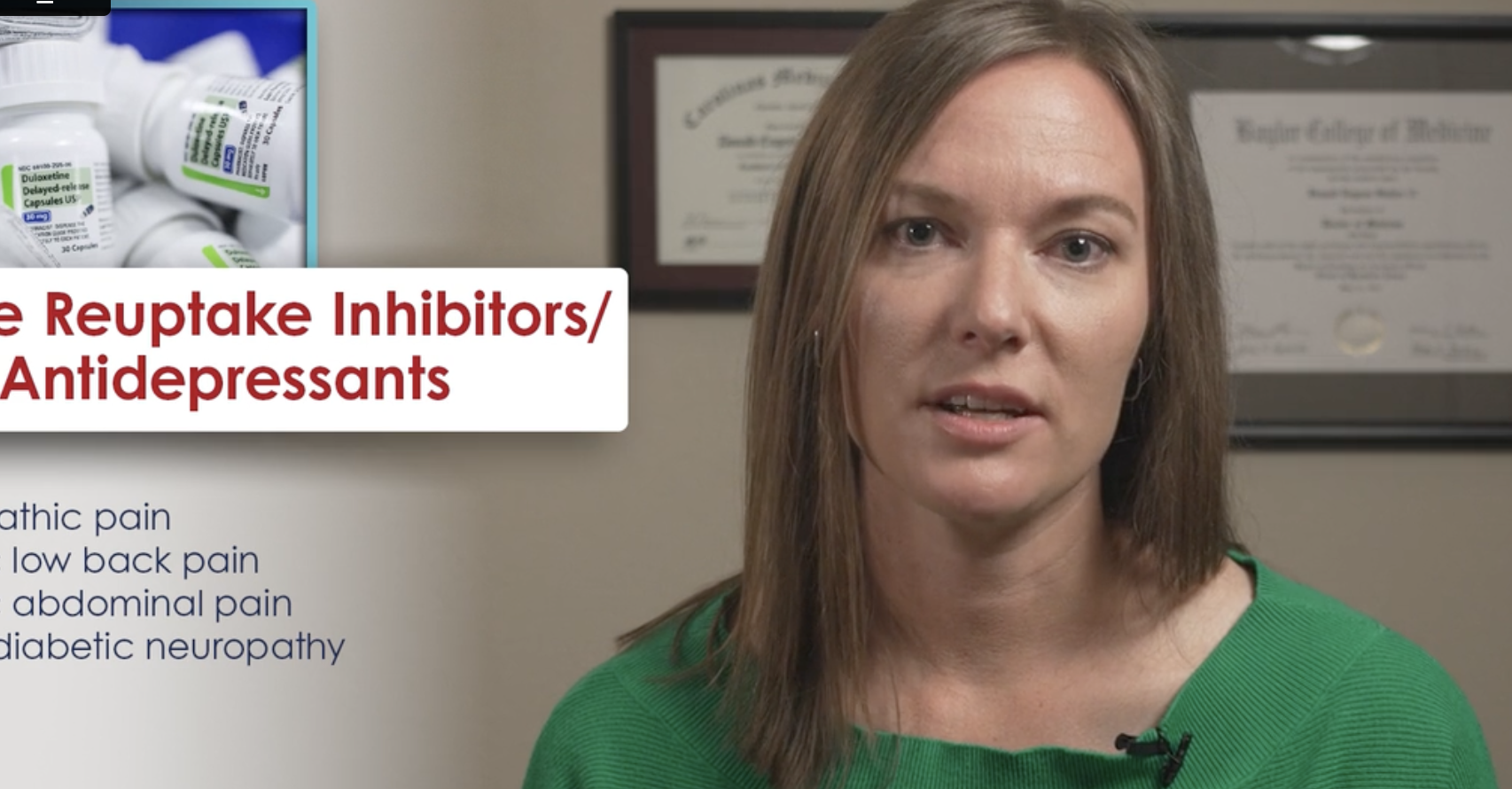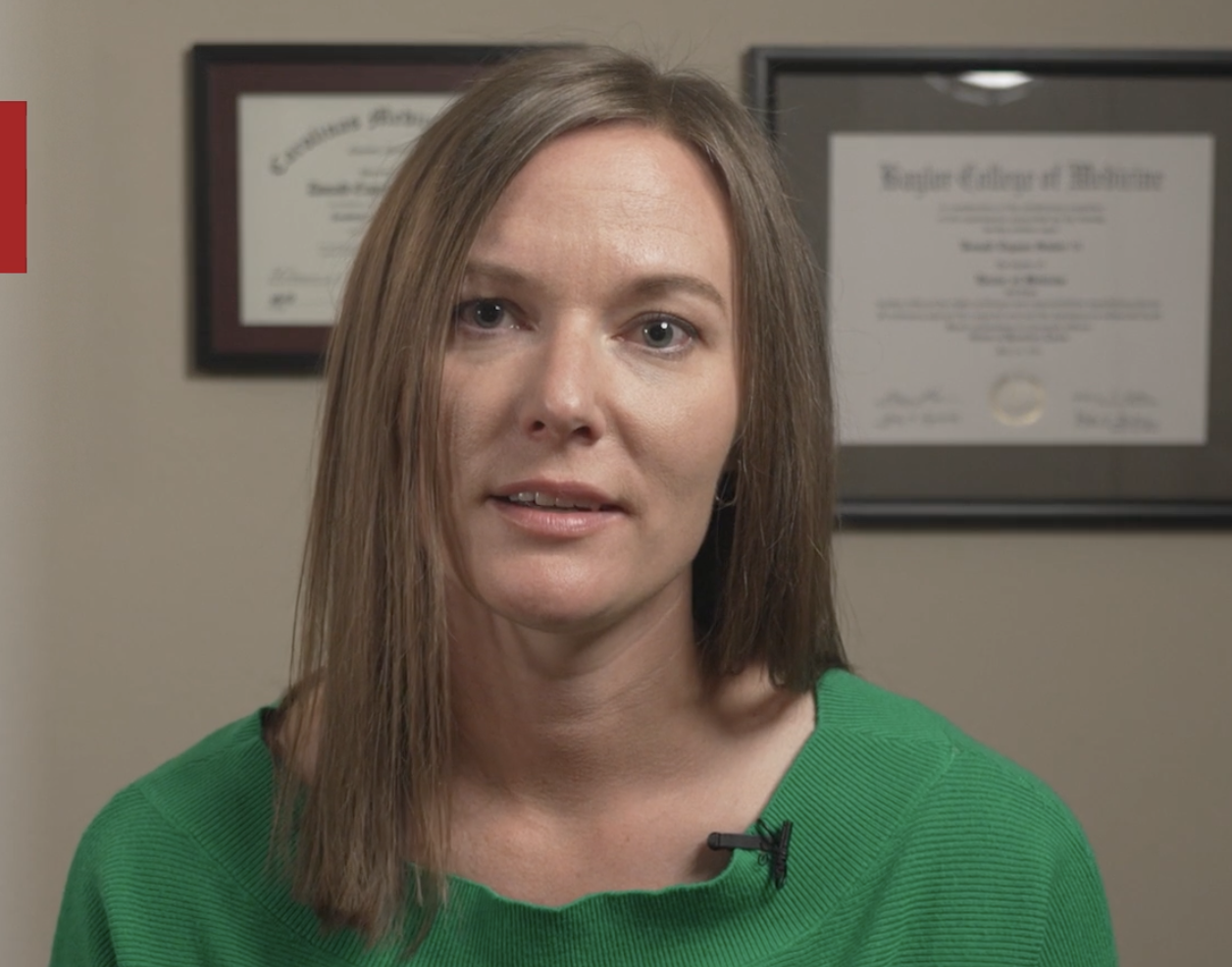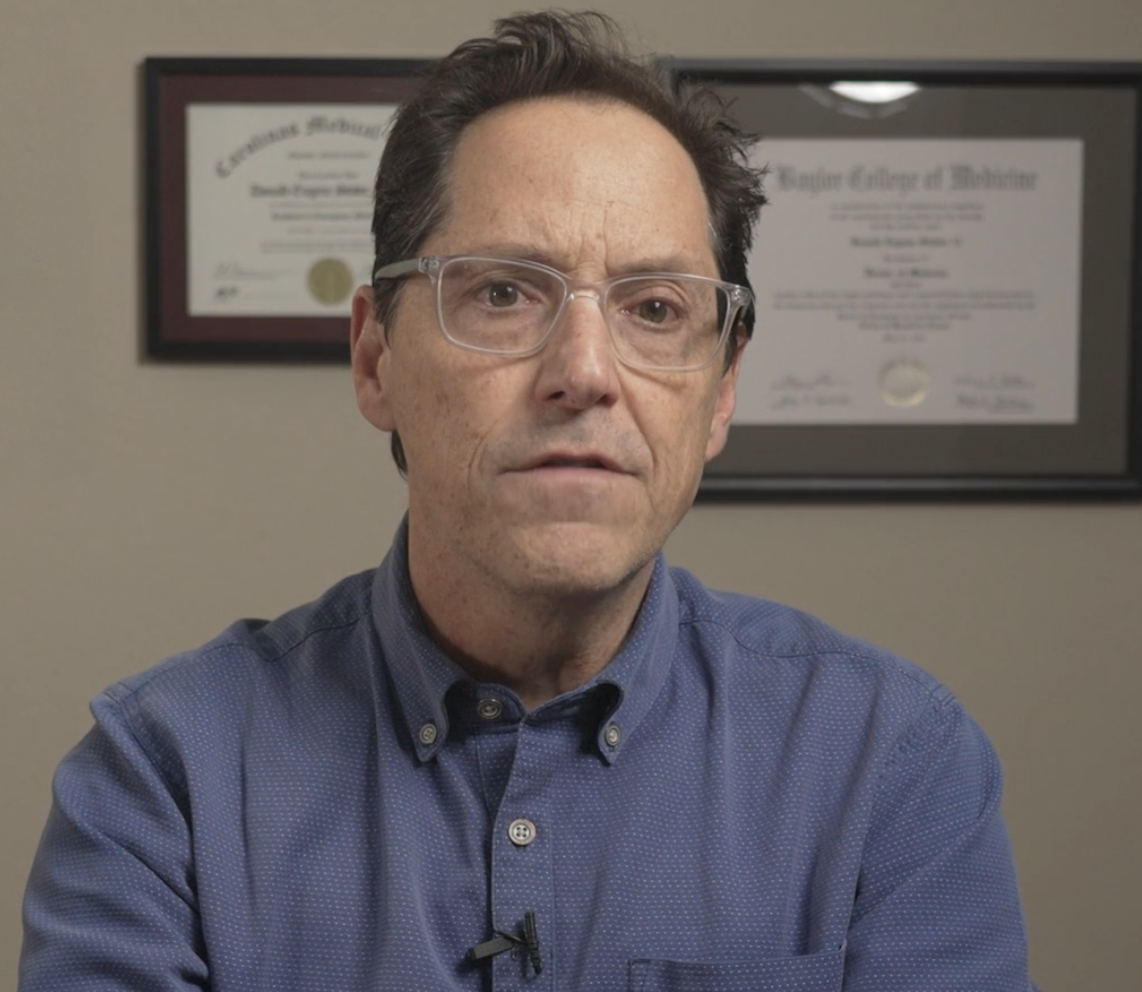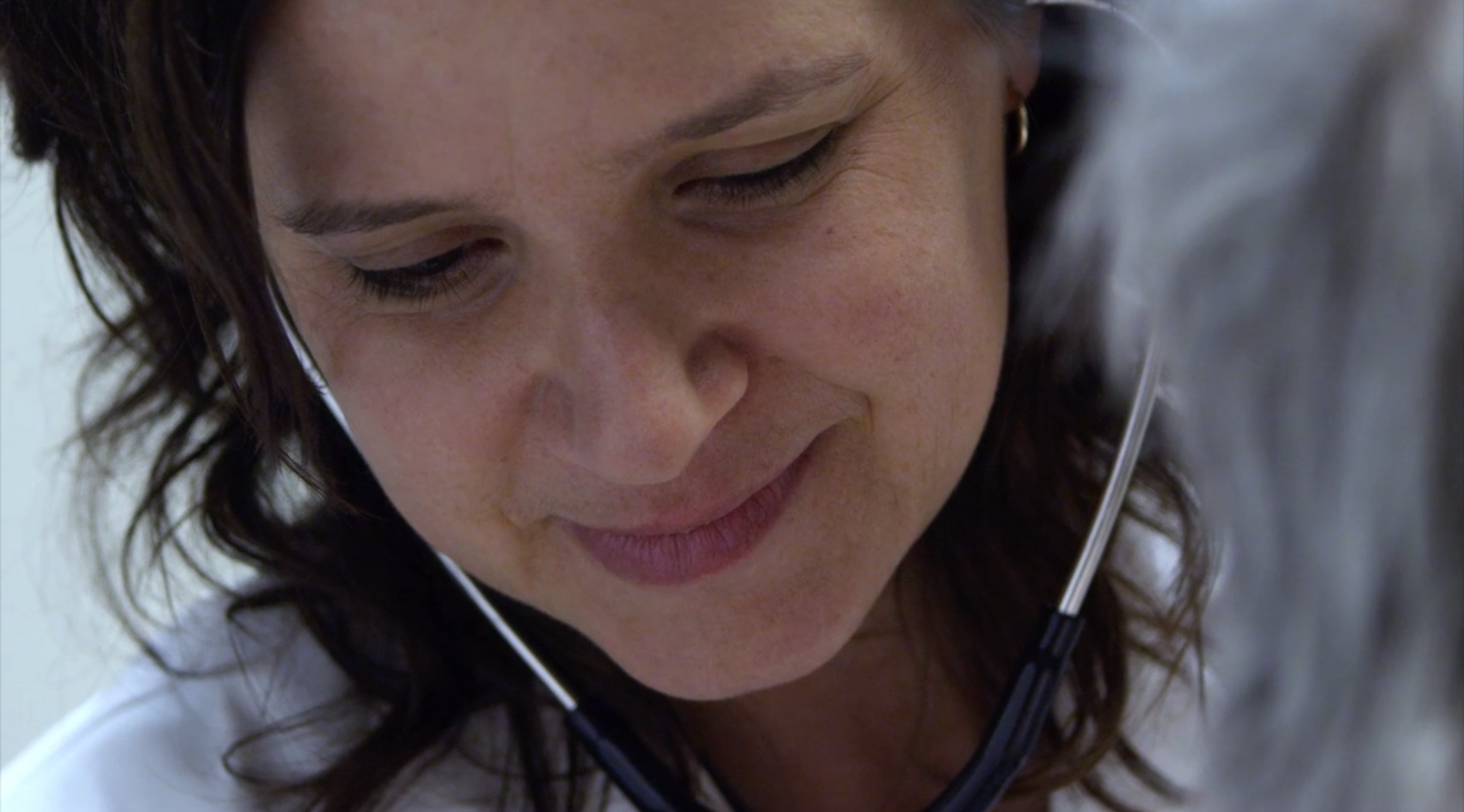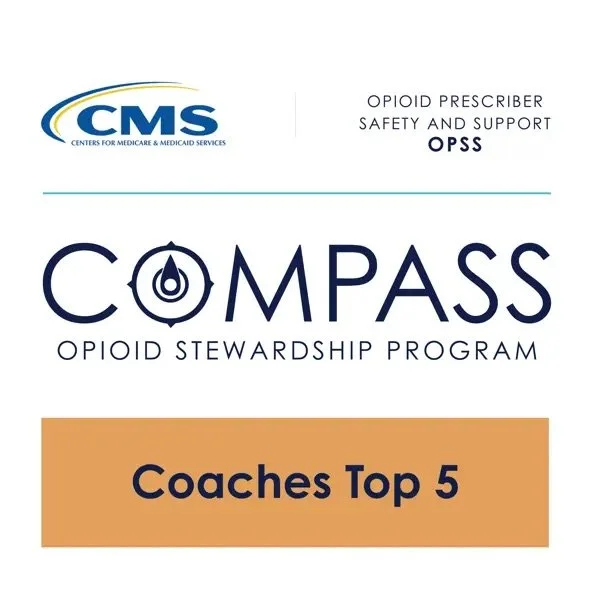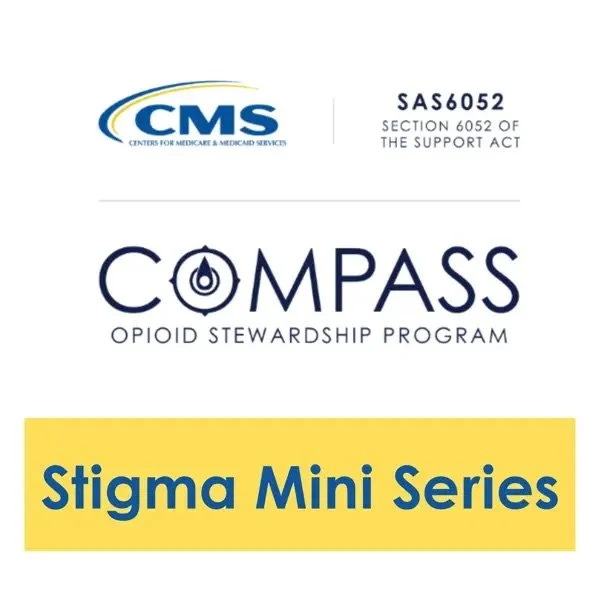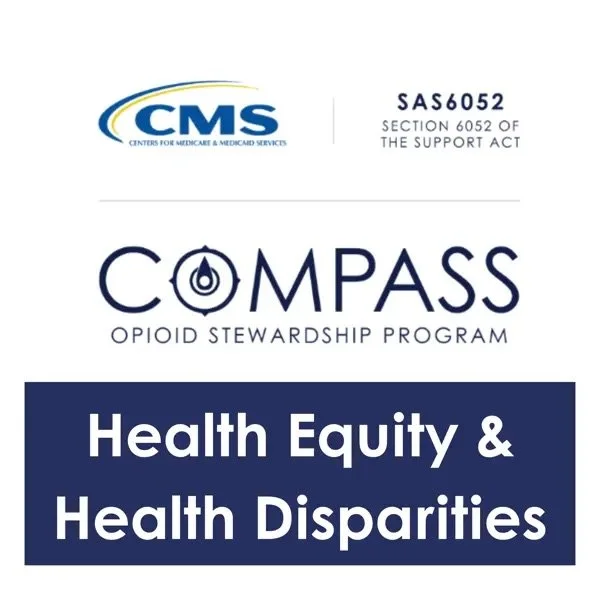
Our Work


Maternal Overdose Matters Plus (MOMs+)
Epifluence’s maternal overdose prevention program aims to equip birthing hospital clinicians with tools and knowledge, building upon the national AIM patient safety bundle, to provide equitable treatment and recovery access for perinatal patients with opioid and other substance use disorders throughout their pregnancy and postpartum journey.
The MOMs+ program is active in Colorado, Wyoming and Louisiana.


Compass Opioid Provider Safety & Support (OPSS) Program
Funded by CMS in response to the SUPPORT Act, the Compass Healthcare Collaborative has partnered with Epifluence to launch the nationwide Compass Opioid Stewardship Certificate Program, which aims to reduce the opioid epidemic’s impact by equipping clinicians with opioid stewardship knowledge and best practices.


Compass Surgical & Healthcare Alliance for enhanced Recovery and Pain management (SHARP)
The Compass Healthcare Collaborative has partnered with Iowa Health and Human Services and Epifluence to offer perioperative opioid stewardship education and resources to Iowa surgical providers, clinical teams, and patients.

Rural Opioid & addictiOn Treatment System (ROOTS)
ROOTS is a collaborative effort, built and managed by Epifluence, focused on empowering medical systems, hospitals and clinics in rural communities. Through education and coordination with addiction specialists, we provide equitable access to treatment and recovery services for patients with SUDs.
Started in the Eastern Plains of Colorado, ROOTS is dedicated to creating an ecosystem of rural addiction care systems that is effective, accessible, and sustainable. ROOTS is supporting addiction care initiatives in both Colorado and Wyoming.
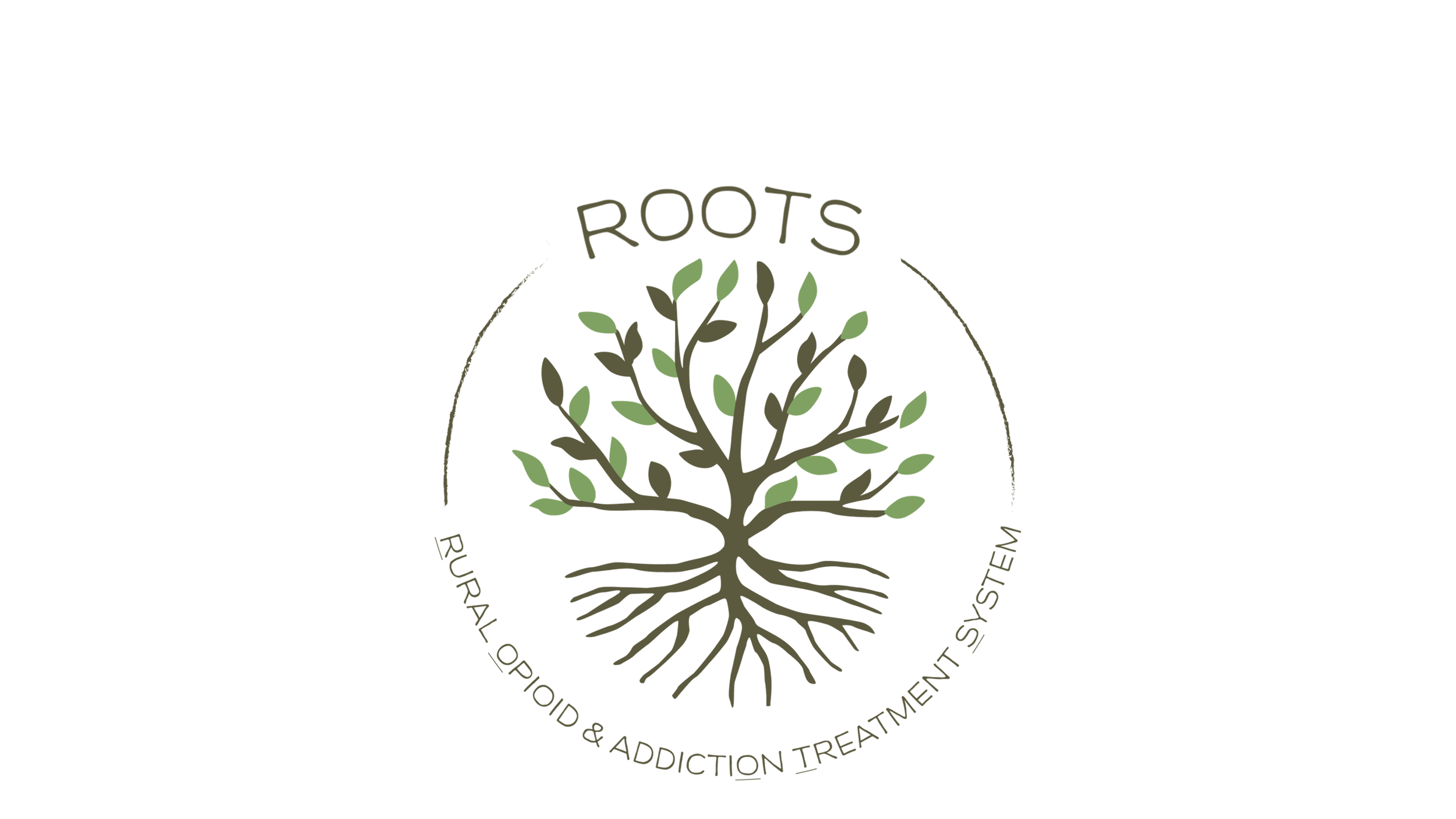
Epifluence supports The Naloxone Project through data monitoring, analytics, and cross-project collaboration. Our partnership helps advance harm reduction practices by providing actionable insights and fostering alignment across initiatives. For example, we help track naloxone kit distribution across partner sites, identifying trends in usage and gaps in access to ensure timely and equitable distribution. Together, we’re working to enhance impact, improve outcomes, and ensure consistent support for individuals and communities affected by substance use.
The Naloxone Project (TNP)

Opioid Prescribing and Treatment Guidelines
Epifluence clinicians served as editors for both Colorado’s Opioid Solution: Clinicians United to Resolve the Epidemic (CO’s CURE) guidelines and the American College of Emergency Physicians’ (ACEP) 2017 Opioid Prescribing & Treatment Guidelines, helping to shape state and national standards for safe, evidence-based opioid prescribing and pain management
Alternatives to Opioids (ALTO)
Epifluence clinicians have led the effort to promote multimodal analgesia across medical specialties, creating advanced pain management guidelines through the CO’s CURE Initiative, and training hundreds of hospitals and thousands of clinicians nationwide.

Perinatal SUD Video Portfolio
-
![]()
Stigma & Bias
The first part of our training series for frontline healthcare workers delves into the critical issue of stigma and bias within the treatment of birthing patients with substance use disorders. -
![]()
Harm Reduction
The second part of our training series for frontline healthcare workers explores the principles of harm reduction and the potential to save lives by prioritizing safety and well-being over judgement. Through expert insights we learn how providing naloxone and other harm reduction strategies can foster trust between healthcare providers and birthing persons struggling with substance use, leading to more effective interventions and support.
-
![]()
Treatment of SUD
The third part of our training series for frontline healthcare workers explores the world of evidence-based medication treatment for substance use disorders during the perinatal period. We navigate the complexities of utilizing medications to aid in recovery and explore the diverse options available, while highlighting important clinical pearls. By equipping healthcare workers with the latest insights, we empower them to play a pivotal role in supporting birthing persons on their path to recovery.
-
![]()
Caring for Perinatal People with SUD
The fourth part of our training series for frontline healthcare workers focuses on the compassionate medical care of perinatal persons with substance use disorders. Our subject matter expert addresses the unique challenges and health implications these individuals face and brings a heightened understanding to some of the psychological and physiological barriers of these disorders. We offer valuable insights, evidence-based strategies and demonstrate how healthcare professionals can play a pivotal role in fostering healthy outcomes for the substance exposed dyad, through informed and empathetic care.
-
![]()
Perinatal Substance Use: What Social Workers and Mandatory Reporters Need to Know
Navigating the landscape of notifications and reports to child welfare can be challenging. This video equips social workers and mandated reporters to better understand when a report is warranted by clarifying reporting duties, demystifying what happens after a report is made and exploring recent legislation changes in an effort to improve collaboration between healthcare workers and child welfare.
-
![]()
Indications for Toxicology Testing
In reviewing the 2023 Illuminate SuPPoRT Colorado guidelines on Indications for Toxicology Testing in Colorado Birthing Facilities, the distinction between screening and toxicology testing is emphasized. Dr. Gold offers evidence-based recommendations for determining when toxicology testing is warranted and discusses the importance of establishing safe feeding plans as part of perinatal substance use prevention, recovery, and treatment efforts.
-
![]()
Toxicology Testing: Limitations and Complexities
Toxicology testing has many limitations and complexities, often due to differences in methodologies and protocols between organizations. Challenges are common, such as delayed results, presence of false positives and false negatives and inconsistencies in accurate interpretation. Understanding of the differences between screening and toxicology testing is essential, as is the development of standardized approaches, considering the implications of toxicology testing on patients and families.
-
![]()
Doing Right by Birth
This video explores the complex interplay between CAPTA laws, mandatory reporting, and perinatal substance use. It delves into the potential negative consequences of incarceration, overuse of drug testing, and family separation. The video highlights the limitations of urine toxicology testing and the importance of addressing racial inequities in the system. Viewers will learn about the reasons healthcare providers may report patients out of fear and the lack of evidence supporting the effectiveness of removing children from substance-exposed environments. The video advocates for a more compassionate and supportive approach, emphasizing the need for therapeutic alliances, trust, and clinical empathy. Clinicians will gain a deeper understanding of the challenges faced by perinatal individuals with substance use disorders and the importance of advocating for policy changes to improve outcomes.
-
![]()
Dying for Care- Ending the Stigma of Addiction for Pregnant Persons
By shedding light on the intersection of substance use and pregnancy, we aspire to replace judgment with empathy, ensuring that every individual receives the care, understanding, and respect they deserve on their journey towards recovery and parenthood.
-
![]()
Mandatory Responder
By emphasizing that unwarranted reports to child welfare can cause unnecessary stress and strain on families, we seek to rebuild trust in healthcare relationships and provide compassionate care for perinatal patients with SUDs. This video provides education that in Colorado not all substance use requires reporting; only when a child is directly affected and threatened by the substance use, is it necessary to make a report.
-
![]()
Best Practices in Caring for Newborns with Substance Exposure
This video equips healthcare providers with evidence-based strategies for supporting infants affected by Neonatal Opioid Withdrawal Syndrome/ Neonatal Abstinence Syndrome (NOWS/NAS). The video highlights the Eat, Sleep, Console (ESC) approach, emphasizing non-pharmacologic care techniques that promote family involvement, reduce NICU stays, and improve outcomes for newborns with substance exposure.
-
![]()
Alcohol Use Disorder in Pregnancy
This video provides a comprehensive overview of perinatal alcohol use, including the prevalence and risks. The video also explores the role of screening and evidence-based withdrawal management and long-term treatment options for pregnant and postpartum individuals struggling with alcohol dependence.
-
![]()
Stimulant Use Disorder in Pregnancy
This video provides a comprehensive overview of perinatal stimulant use, including the prevalence and risks associated with these substances, such as cocaine, methamphetamine, and amphetamines. The video also explores the role of screening and early intervention in identifying pregnant individuals at risk for stimulant use and connecting them with appropriate resources. Clinicians will learn about evidence-based withdrawal management strategies for pregnant and postpartum individuals struggling with stimulant dependence, as well as long-term treatment options to support sustained recovery.
-
![]()
Nicotine Use in Pregnancy
This video provides a comprehensive overview of perinatal nicotine use, including the prevalence and risks associated with cigarette smoking, vaping and use of other nicotine products. The video also explores the role of screening and early intervention in identifying pregnant individuals using nicotine and connecting them with appropriate resources. Clinicians will learn about evidence-based smoking cessation strategies for pregnant and postpartum individuals, including the use of medication and behavioral interventions. The video also addresses the challenges of nicotine addiction and the importance of long-term support to maintain abstinence.
-
![]()
Cannabis Use in Pregnancy
This video provides a comprehensive overview of perinatal cannabis use, including the prevalence and evolving understanding of its risks. The video also explores the role of screening and early intervention in identifying pregnant individuals using cannabis and connecting them with appropriate resources. Clinicians will learn about the challenges of assessing the effects of prenatal cannabis exposure and the importance of individualized care planning. The video also addresses the potential benefits and risks of medical cannabis use during pregnancy and postpartum, considering the evolving evidence base.
-
![]()
Do No Harm- Part 1 of 3, Louisiana Series
For perinatal patients in Louisiana, overdose is the leading cause of death. People who use drugs often avoid accessing medical care due in large part to the stigma discrimination they face in healthcare settings.
-
![]()
Pregnant and Powerful- Part 2 of 3, Louisiana Series
Addiction and substance use affect many pregnancies. Shame, fear of judgement, legal concerns, and unease about child welfare involvement keep many from seeking prenatal care or discussing substance use with medical providers.
-
![]()
Delivering Change- Part 3 of 3, Louisiana Series
Overdose is the leading cause of death among perinatal patients. Treatment for substance use disorders is evidence-based, highly effective, and lacking in most communities.
Opioid Stewardship Video Portfolio
-
![]()
What is Pain?
Patient-facing educational video preparing perioperative patients to manage pain associated with their surgery and recovery. -
![]()
Understanding Opioids
Risks, Benefits, Safe Storage & Disposal
Patient-facing educational video preparing perioperative patients to manage pain associated with their surgery, and better understand the role of opioids.
-
![]()
Preparing for Surgery
Patient-facing educational video created to help patients prepare for elective surgery by optimizing their health with diet, movement, smoking cessation, rest and other beneficial changes.
-
![]()
Understanding Postoperative Pain and Pharmacologic Management
Patient-facing educational video created to help patients manage pain after surgery, by understanding the role of over-the-counter and prescription analgesics.
-
![]()
Understanding Postoperative Pain and Non-Pharmacologic Management
Patient-facing educational video helping postoperative patients with non-pharmacologic strategies to relieve pain and promote healing, focusing on patients participation in their own recovery.
-
![]()
Comprehensive Perioperative Pain Management
Provider-facing educational video on how to effectively manage perioperative pain and combat the opioid crisis by mastering opioid stewardship, multimodal analgesia, and comprehensive patient care from assessment to post-discharge.
-
![]()
Preoperative Care & Special Considerations
Provider-facing educational video on preoperative care, focusing on comprehensive assessments and tailoring strategies for diverse patient needs. Learn how to optimize pain control, minimize opioid reliance, and address special considerations to ensure a smoother, less painful surgical journey and recovery.
-
![]()
Multimodal Analgesia: Part 1A: Medications
Provider-facing educational video that explores how different classes of medications work together to optimize pain relief while minimizing side effects, understanding their mechanisms and how to strategically combine them for superior patient outcomes. Part 1.
-
![]()
Multimodal Analgesia: Part 1B: Medications
Provider-facing educational video that explores how different classes of medications work together to optimize pain relief while minimizing side effects, understanding their mechanisms and how to strategically combine them for superior patient outcomes. Part 2.
-
![]()
Multimodal Analgesia: Regional Anesthesia
Provider-facing educational video that explores how specific nerve blocks and neuraxial techniques can revolutionize perioperative pain management. Discover the diverse applications of regional anesthesia, its opioid-sparing benefits, and how it seamlessly integrates into a comprehensive multimodal approach for enhanced patient comfort and faster recovery.
-
![]()
Postoperative Pain Management & Persistent Post-Surgical Pain
Provider-facing educational video that equips viewers with the latest techniques to manage acute postoperative pain and prevent the development of chronic pain conditions. Learn how to create personalized plans, integrate multimodal approaches, and improve long-term patient well-being.
-
![]()
Physician Protect Thyself: The Risks of Liberal Opioid Prescribing
This educational video focuses on mitigating the legal and practice risks associated with opioid and controlled substance prescribing. This session will delve into the potential legal ramifications of liberal prescribing practices, including criminal, malpractice, medical board actions, and program exclusion. The lecture will also address the risks associated with abrupt opioid discontinuation and, crucially, introduce practical recommendations that physicians can immediately implement to enhance patient safety and minimize their medical-legal risk.
-
![]()
Opioids: The Good, the Bad and the Ugly
This educational video explores the historical context of opioid use in medicine, outlining their evolution and applications. Participants will learn about the legitimate benefits and appropriate indications for opioid therapy, including the nuances between different opioid agents and guidance on selecting the optimal choice for specific patient needs.
-
![]()
Alternatives to Opioids (ALTOs) for the Treatment of Pain: The Opportunity to Provide Better, Safe Pain Control
This educational video explores a comprehensive approach to pain management beyond opioids. This session will begin by establishing a foundation in pain physiology, enabling participants to effectively identify different pain types. The lecture will then introduce the multimodal pain philosophy, emphasizing a holistic approach to pain management. Participants will learn about the evidence supporting various non-pharmacologic pain control methods and explore the evidence-based use of common non-opioid pharmacological medications.
-
![]()
Pain is More than We Understand it to be: Understanding Pain Psychology and How to Have Better Conversations at the Bedside
This educational video delves into the complex interplay between pain, psychology, and social factors. This session will clarify the distinctions between nociception, pain, and suffering, emphasizing their unique characteristics within the pain experience. Participants will gain an understanding of how psychological and social factors contribute to chronic pain, exploring the multifaceted nature of persistent pain.
-
![]()
Chronic Pain Management: Best Practices
This educational video focuses on the practical aspects of managing chronic pain, particularly with opioid therapy. This session will guide participants in identifying appropriate candidates for chronic opioid therapy initiation and provide strategies for effectively discussing expectations with these patients. The lecture will cover the implementation of appropriate monitoring techniques for chronic opioid therapy, including methods to minimize side effects and adverse outcomes.
-
![]()
Opioids and Benzodiazepine Tapering: Best Practices
This educational video provides a practical guide to safely and effectively tapering patients off opioids and benzodiazepines. This session will focus on patient selection for tapering, including identifying those at high risk for serious adverse outcomes and those most likely to benefit from this process. Participants will learn effective strategies for introducing the concept of tapering to patients, ensuring clear communication and patient buy-in.
-
![]()
Recognition and Management of Patients with Opioid Use Disorder (OUD)
Educational video that focuses on the practical aspects of identifying and treating OUD in primary care settings. This session will cover effective screening methods for OUD within primary care practices. Participants will learn about the benefits of medication for opioid use disorder (MOUD) and how buprenorphine can be successfully integrated into their practice. The lecture will also discuss essential harm reduction strategies, including the appropriate use and distribution of naloxone.
-
![]()
Nuts and Bolts of Opioid Use Disorder Management in the Primary Care Setting
Educational video that provides a practical, case-based approach to managing OUD in primary care. This session will review key treatment considerations when prescribing medications for opioid use disorder (MOUD). Participants will have the opportunity to create individualized, evidence-based treatment plans for several patient case studies, applying the knowledge gained throughout the program. The lecture will address the complexities of managing patients with co-existing chronic pain and OUD, offering strategies for integrated care.
-
![]()
Motivational Interviewing: Part 1
Clinician-facing video explaining and demonstrating the core techniques of motivational interviewing in clinical practice.
-
![]()
Motivational Interviewing: Part 2
Clinician-facing video explaining and demonstrating the core techniques of motivational interviewing in clinical practice.
Documentaries
This documentary tells the story of the beginning of emergency medicine and how the founders of the specialty changed the American medical landscape.
A palliative care doctor on finding a “good death” for children in the worst situations.
Compass Podcasts
-
![]()
Coaches Top 5
NOV. 6TH, 2023 | 12MIN
In this episode Dr. Stader and Dr. Bradley summarize and offer key insights for the following Coaches Top 5 picks. -
![]()
Stigma Mini Series
AUG. 14TH, 2023 | 51MIN
Dr. Don Stader, MD with Dr. Kaylin Klie, PharmD discuss importance of language with substance use disorder. -
![]()
Health Equity and Disparities
MAR. 27TH, 2023 | 31MIN
Dr. Don Stader, MD, and Dr. Rachael Duncan, PharmD, sit down to introduce the basic concept of health equity. -
![]()
Meeting a Patient’s Needs
APR. 11TH, 2022 | 20MIN
Dr. Stader meets Anne, a chronic pain patient new to his practice and they review her medical history. -
![]()
Motivational Interviewing
OCT. 13TH, 2023 | 16MIN
Dr. Don Stader calls mentor Dr. Peter Barnett to discuss burnout and his patients not wanting to follow directions. -
![]()
How Did We Get Here?
JUL. 2ND, 2021 | 38MIN
Dr. Don Stader and Dr. Mary Andrawis, PharmD discuss the opioid crisis and our way out with Dr. Andrew Kolodny. -
![]()
Nuts & Bolts of OUD
DEC. 3RD, 2021 | 1HR 7MIN
Dr. Steven Wright joins us to explain how to best manage patients with OUD in the primary care setting.
Reports
This final report provides a comprehensive summary of the Colorado ROOTS project, detailing its overall status, key achievements, challenges faced, and outcomes.
It reflects on the project's progress from inception to conclusion, highlighting major milestones reached, significant accomplishments, and lessons learned.










